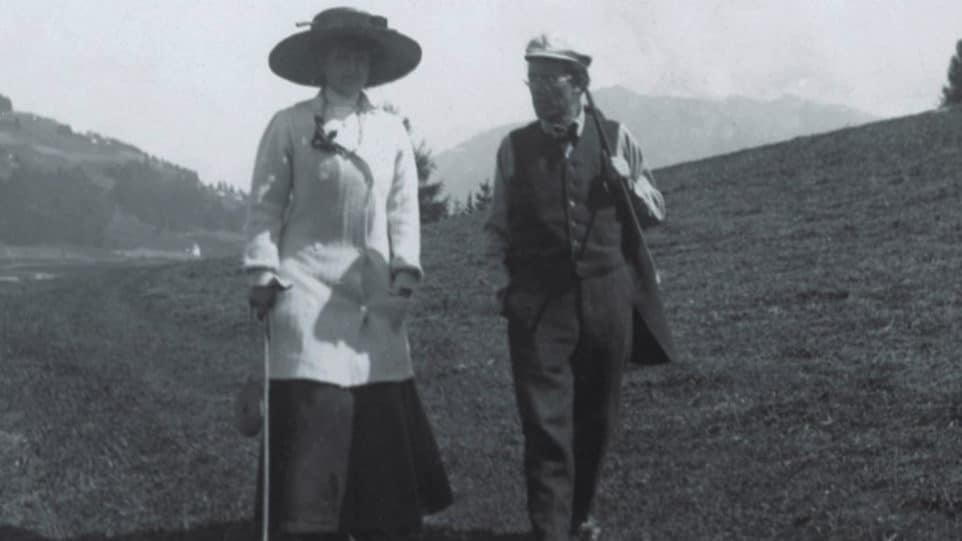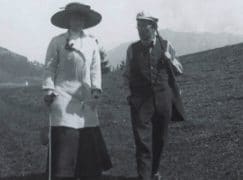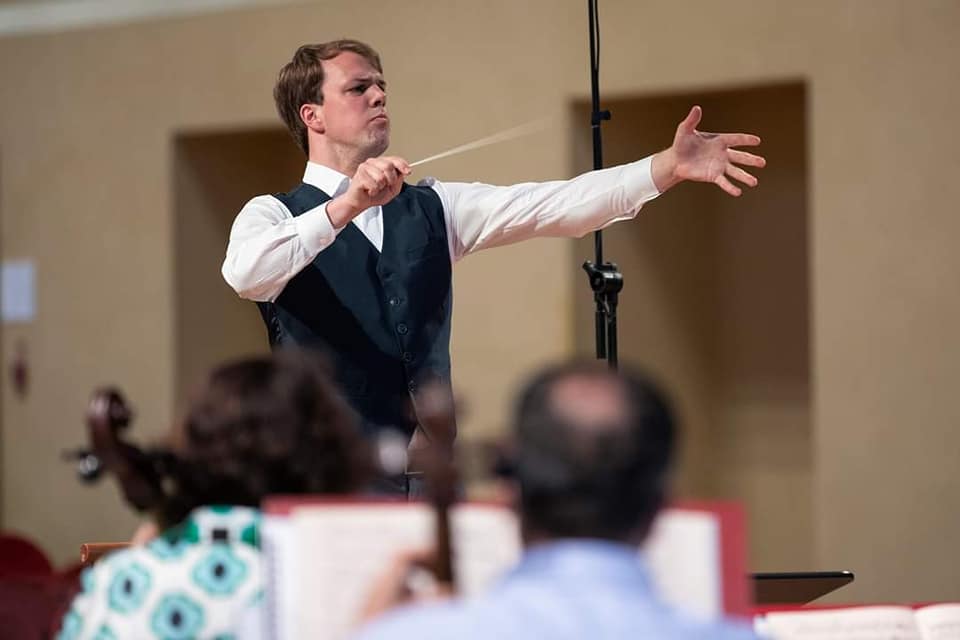Was Alma Mahler a fighter for women’s rights? Pull the other one…
mainIn this weekend’s edition of the Wall Street Journal I review Cate Haste’s feminist biography of Alma Mahler.
Opening par:
On the second page of “Passionate Spirit,” the English biographer Cate Haste runs up her flag: “I like Alma Mahler,” she declares. This statement places the author in direct contradiction to three famous husbands, numerous lovers and most of Alma’s acquaintance. A femme fatale who proclaimed herself a muse to genius, Alma Mahler aroused lust in her youth and gossip-seekers into her 80s. But not many people who knew her liked her very much, or for very long. I clearly remember her daughter, Anna Mahler, telling me that at no time in her long life did her mother ever have a devoted female friend.
Read on here.







As a fighter for women’s rights she would only come second to Cosima Wagner.
I’d love to read on, but not at the price of a subscription to the WSJ…
One has to subscribe to read your whole review, Norman.
We were in Dobbiaco last month and I have to report that the old post stop, where Mahler stayed in touch each day, is caged off and graffiti-blighted at the rear and apparently out of use. One can only hope squatters don’t get inside and cause damage. Even the big hotel, which is now a music school, etc., looks a tad quiet and underused, with grounds poorly maintained twelve years or so after a comprehensive upgrade and landscaping.
As long ago as 1968, Mahler’s composition hut
outside of Dobbiaco/Toblach was being used as a
soup kitchen for a youth work crew.
In case you’re wondering…it was minestrone…
seriously….
Minestrone and Mahler! A profoundly disturbing cultural blunder. From now onwards, the Italian cuisine has sunk 12 points on the international ranking system among music lovers, 7 points under the disastrous relationship between Pavarotti and pizzas.
“Ganze Schüsseln voll sind uns bereit!
Gut Äpfel, gut’ Birn’ und gut’ Trauben!
Die Gärtner, die alles erlauben!”
Today, Mahler’s hut is located in the middle of a game park.
„Was mir die Tiere im Walde erzählen…”
https://www.faz.net/aktuell/reise/nah/gustav-mahler-in-toblach-flucht-vor-den-kuhgaesten-12143263.html
I recommend going to Toblach in July for the GM Musikwochen.
I heard a very good Ninth with Dortmund Phil in the small shoe box Mahler-Saal.
It’s pointless complaining about the status of the imfrastructure in this part of Europe.
Two World Wars were just too much.
And it’s not Disney Land.
She must have been an awful person. She even disowned her daughter by Mahler for antisemitic reasons, according to the French writer Claire Goll (memoirs: ‘I forgive no-one’).
And so I’m very happy that I do not have to share my grave with her in Grinzing…
I think you spent 2 lines reviewing the actual book and the rest trashing Alma. What did she ever do to you?
She deeply and unforgivenly hurted every Mahler enthusiast for slowly killing Mahler by her impossible behavior and hard character (as witnessed, again, by Claire Goll who claimed Mahler was mentally and physically undermined by the emotional games she played with him). So, it is normal that we take such things personally. We would have had more music if Mahler had married a sensitive woman, or would have had a harder defensive shell around his neurotic vulnerabilities.
Thomas Mann recalled telephoning Alma Schindler-Zemlinsky-Mahler-Gropius-Kokoschka-Werfel to offer condolences when Franz Werfel died, adding that he would see her at the mortuary. :No, you won’t. I’m not going.” “Pardon? You’re not going to your husband’s funeral?” “No, Thomas. I never go to these things.”
I’m sure a great many people were pleased that the “sack of potatoes” (to quote AM’s daughter) didn’t show up, either.
When Alma proposed to Werfel, he got into an anxiety fit that lasted days on end. Desperately he asked Claire Goll, a friend of his, for advice. She said: ‘Don’t worry too much Franz, it’s only a marriage. If you get enough of it, you can always divorce’. On which Werfel answered: ‘No! Then it will be too late!’ After their marriage, Alma would lock him up in a room where he ordered him to write a masterpiece. In the end, he died of a heart attack. In her salons in NY she had a glass box with the manuscript of the adagio of Mahler’s 10th symphony on display, where the visitors could see – as clearly as possible under the spotlight – his desperate words written in the margin: ‘Oh Alma!’ etc. etc. to make sure she would harvest the glamour and admiration of the guests. (Source: Claire Goll’s memoirs)
More needed? I don’t think so. Obviously, Mahler fell for her beauty and intellectual brilliance, and forgot a thing or two which are absolutely conditional for a human relationship.
“Alma, tell us,
All modern women are jealous,.
Which of your magical wands
Got you Gustav and Walter and Franz?”
– Tom Lehr
Lehrer, but you are right! Inspired by “the juiciest, spiciest, raciest obituary…”
Not only is Lehrer’s song the greatest piece of music composed in the 20th century, but it also has the most inspired lyrics. The rhyming of “Mahler” with “holler” – unbeatable!
I rank “allegiance” with “expedience” and “hypocritical” with “a-political” in ‘Wernher von Braun’ at least as high, if not higher.
This (of course) comes to mind:
https://www.youtube.com/watch?v=QL6KgbrGSKQ
Like minds. . .
An interesting woman, by all accounts, but not really a feminist – unless in the strict sense of sexual libertarianism.
By contrast, Ken Russell portrays her as a talentless, needy ninny.
There are very many Almas.
I can’t see how Alma could be considered a “fighter for women’s rights” when she submissively agreed to Mahler’s draconian terms for marriage. Granted, times and standards were different then. However, she was young – less than 20 – and had her whole future ahead of her. It was not as though she was at risk of becoming a spinster. Neither was she at risk of becoming destitute.
Thanks, Bill Gros, for the lines from clever Tom Lehrer’s hilarious “Alma Rag”, which I need to hear again. His cousin attorney Norman Lehrer was a neighbor.
And to be with the high-status Mahler, she freely agreed to those terms – when she could have stayed with the lower-status Zemlinsky who actually encouraged her composition and was devastated when she ditched him. Sick of spurious misandrist arguments about Mahler “suppressing” her creativity: she had a clear choice and she took it with open eyes and considerable enthusiasm.
Nowadays you’d call her a social climber.
I got an early copy hoping for the best, foolish of me. Not good enough, no matter what you think of Alma, nor what the author’s aspiration is. There really isn’t a good biography of Alma. E. Randol Schoenberg’s recent book on Mann’s Doctor Faustus, largely documentary, doesn’t make her look very good, either–rather a meddler and troublemaker. https://www.ucpress.edu/book/9780520296831/the-doctor-faustus-dossier
Hilmes is very good.
Rode-Breymann 2014
Joel Lazar, thanks for mentioning Alma Schoenberg’s recent study of Thomas Mann’s “Doctor Faustus”.
Mann himself published a book-length account of the writing of “Doctor Faustus” called “The Story of a Novel”. Mann’s neighbor Theodore Weiss-Adorno, immortalized in the book in Wendell Kretschmar’s lecture-recital on Beethoven’s Op. 111, wrote a book about his role in it, which some think he exaggerated, in helping Mann with certain details of it.
Alan Gilbert, firner NYPO music director, apparently read “Doctor Faustus” for the first time and wrote enthusiastically about it on the internet and I believe in The New York Times. As the fictitious life of a german composer through WWII, it may engage anyone interested in the subject. The Mann-Arnold Schoenberg controversy over it also is of interest, and sadly amusing.
When Horenstein visited Alma in NY in 1958 he asked whether there was any truth to the rumor that she and Leopold Stokowski were contemplating marriage. “Are you suggesting that I should marry a *re-creative* artist?”, came the indignant reply.
A revealing and characteristic story about Horenstein and Alma Mahler, Misha. She really was determined to have a creative genius for a husband and would settle for nothing less.
Interesting also that emlinsky and Alma both later lived in New York. I wonder if they ever met again. He was then living with his second wife.
Horenstein is famous among collectors for his recording of Mahler Third. I like it, but also his Fourth and Eighth, although none is my favorite. His Strauss “Metamorphosen” I like better than Klemperer’s or Furtwaengler’s, and as much as Karajan’s on CD with D&T and VLL with Janowitz.